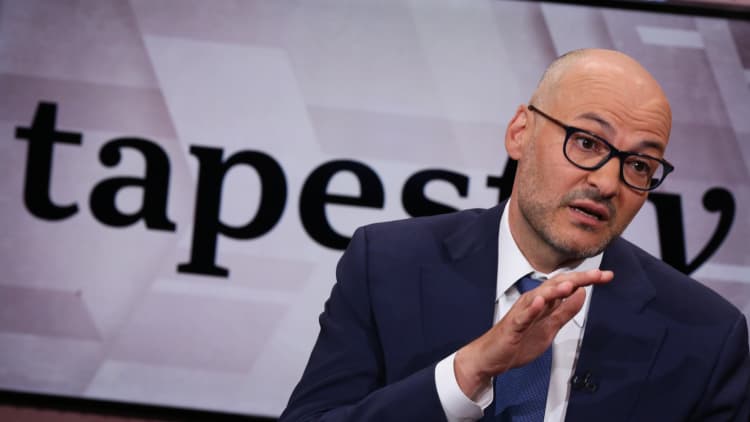
Tapestry is keeping China on its radar this upcoming holiday season, as it looks to grow the Asian market and handle the potential impact of President Donald Trump's tariffs, CEO Victor Luis said on CNBC Tuesday.
The Coach parent began divesting its sourcing from China in 2011, which will soften the impact of tariffs, he told "Closing Bell."
"Between 3 and 4 percent of our handbags come from China, so we don't see a great impact from any duties," Luis said.
Any impact this year from the 10 percent duty on travel goods, which is expected to increase to 25 percent in January, has already been embedded in the company's guidance, he added.
"As far as other product categories, footwear and ready to wear, which are much smaller parts of our business ... the team is working incredibly hard should [tariffs] come into play," Luis noted.
Trade tensions have been escalating between the U.S. and China as each country continues to slap tariffs on the other. Retailers have been warning that a trade war could undermine the economy and lead to higher prices.
Luis said Tapestry, which also owns the fashion brands Kate Spade and Stuart Weitzman, is turning its attention to the Asian market for long-term growth.
"We're very excited about the platform we're creating for sustainable long-term growth as a house of brands. Our strategy has been creating a platform where we could leverage the strengths of the organization and the platform of supply chain and talent that we have across the world to help brands grow globally," he said. "We're especially focused on the Asian markets, where we have seen great performance over the last few years."
The CEO also talked about retail space in malls shrinking and becoming less lucrative.
"We feel that we've rightsized our footprint, and we will evaluate as leases come up whether further shrinkage is justified," Luis said.

